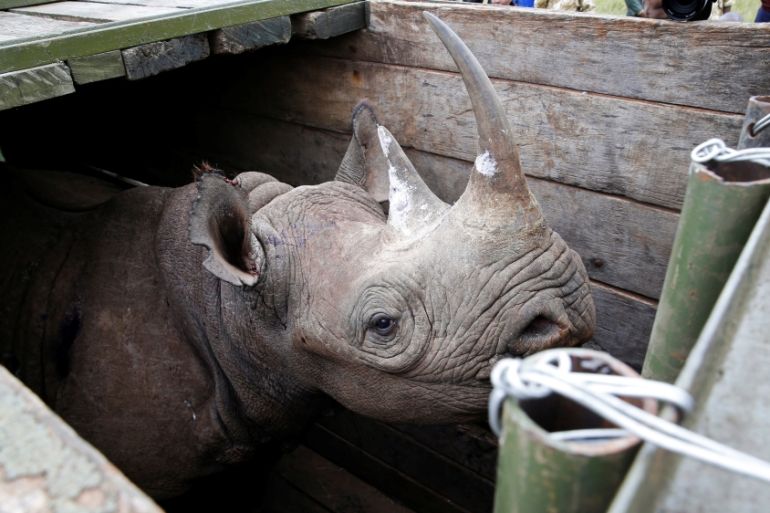Probe launched as one more black rhino dies after Kenya transfer
Police detectives are given one week to determine what caused the deaths of nine critically endangered black rhinos.

Authorities in Kenya have launched an independent investigation into the deaths of critically endangered black rhinos during their transportation from one national park to another.
A total of nine rhinos died, Tourism Minister Najib Balala told reporters on Tuesday in the Kenyan capital, Nairobi, raising the toll from the eight reported on Friday.
Keep reading
list of 4 itemsLost Futures
Photos: Greek valley that became a lake stirs drought debate
Botswana threatens to send 20,000 elephants to Germany
Two female rhinos from the group are in good health, he added.
Police detectives have now been brought in and given one week to determine what caused the deaths, said Balala.
“Nine of them died due to reasons we are still investigating. The preliminary report that we got from the experts from Kenya Wildlife Service (KWS) was saying it’s the saline water” they drank, he added.
The 11 critically endangered rhinos were among a group the KWS began moving last month to Tsavo East National Park.
‘Salt poisoning’
The initial investigation by KWS attributed the rhino deaths to salt poisoning after drinking water in their new habitat.
The inquiry will look into what caused the deaths of the animals, with the minister raising the possibility they may have died from heat stroke.
“Then, we will investigate if Tsavo East National Park was the appropriate place to do the translocation,” Balala said.
The KWS will not take part in the new inquiry to ensure its independence, the minister said.
The death of the animals is another blow for Kenya, where wildlife tourism is a major attraction, after the world’s last male northern white rhino died in March, leaving only two females of its subspecies alive.
In May, three black rhinos were killed by poachers in Kenya’s Meru National Park.